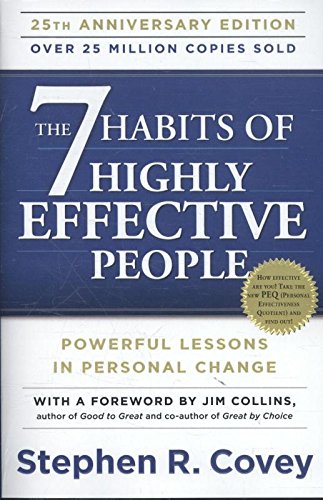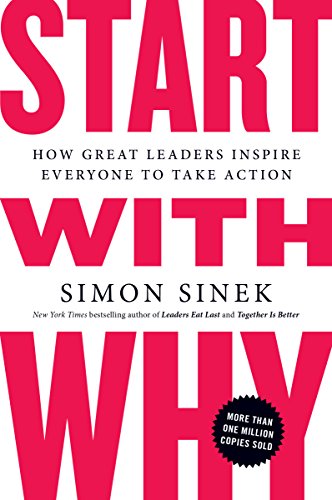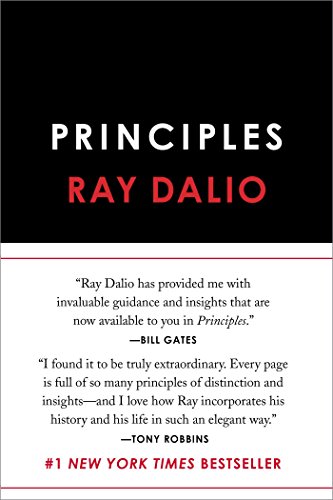Stillness Is The Key
Rating 5/5
Ryan Holiday’s Stillness is the Key is one of my favourite books from 2019.
I believe that everyone can get something of value from reading Stillness and that you owe it to yourself to buy and keep on your bookshelf and turn back to regularly.
This is considered the third in a trilogy of books on Stoic philosophy that Ryan has written and while Obstacle and Ego are books that I highly recommend to people in certain instances, Stillness has something for everyone.
It’s also extremely practical.
Each chapter includes advice to apply the practices talked about which is something that wasn’t emphasized as much in OITW and EITE.
We live in a busy and chaotic world. Everyone is gasping for air as our attention is pulled in countless different directions and the key to it all is to find stillness in whatever way works best for you.
This book shares why stillness is so importantly (and has literally saved the world from meltdown) and how you can get more stillness in your life to become better at everything you do.
Leaders Eat Last
Leaders Eat Last by Simon Sinek is an exploration of leadership and a call for the urgency of more leaders being needed in the world.
I found the title of the book confusing because even though Sinek briefly refers to how some leaders in the army eat after their subordinates, the book seemed to be more about the neurochemistry of human interaction and examples of good and bad leadership. I guess that means the title still works in the sense of eating last being one of the principles of leadership but it still confused me throughout listening to the audiobook.
Not a bad book about leadership but not great either.
Dichotomy of Leadership
Jocko and Leif are back at it with a follow-up book to Extreme Ownership, which still stands as one of my favourite business books of all time because of the real-world parallels they were able to draw between leadership on the battlefields of Iraq and leadership in the office of corporate America.
After four or more years since the release of Extreme Ownership, Dichotomy begins where it left off and reigns in some of the extremes from the previous book as the authors found business owners struggling when taking the concepts of the first book far too literally.
Dichotomy sets to soften some of the blows by being “in control, but not rigid” and helping readers see the gray area that is often where true leadership lies.
I liked this book but not as much as how fresh the idea was when I read Extreme Ownership. While the business principles are still solid, many of the stories from Iraq that Jocko and Leif tell sound familiar and rehashed to me. Some of them are from the previous book and it could just be that I’ve recalled them from some of the Jocko Podcast episodes but I think that it is more so from the previous book. Sure, they’ve retold the stories from the dichotomous perspective but I’d still have liked to get more fresh stories from the book than feeling so much like a repeat of Extreme Ownership.
Anything You Want
Anything You Want by Derek Sivers is collection of short stories and lessons about how Derek built CD Baby, his online music store for independent musicians. CD Baby became renowned for its customer service as Derek built it to great success.
This short book / audiobook contains a lot of important lessons for any entrepreneur to pay attention to and is worth reading through a few times at least. At lot of books belabour their points with overdrawn arguments but not this one. So if you’re short on time but need to absorb a lot of knowledge from a successful entrepreneur, you’ll enjoy Anything You Want.
The audiobook is also read by Derek who’s a great storyteller and so I highly recommend checking out the audio version if you can.
Life Value 5/5
Entertainment Value 5/5
Who
Who by Geoff Smart is the definitive guide to hiring employees. I’ve heard Tim Ferriss recommend this book countless times to anyone in HR or entrepreneurs needing to hire employees and now that I’ve read through it I can see that it’s for good reason.
Who is a great step-by-step process for finding and hiring the right employees to fit the needs of the job you are looking to fill. By understanding more deeply the role you are looking to fill, how it fits in to your company culture, and the outcomes expected from the job, you will be able to better narrow in on what are called the A Players who will lead your company to greater success.
Who is a great step-by-step process for finding and hiring the right employees to fit the needs of the job you are looking to fill. By understanding more deeply the role you are looking to fill, how it fits in to your company culture, and the outcomes expected from the job, you will be able to better narrow in on what are called the A Players who will lead your company to greater success.
Who is a great step-by-step process for finding and hiring the right employees to fit the needs of the job you are looking to fill. By understanding more deeply the role you are looking to fill, how it fits in to your company culture, and the outcomes expected from the job, you will be able to better narrow in on what are called the A Players who will lead your company to greater success.
The book provides detail on each step of the hiring process from identifying your needs to finding the right candidates to hiring and retaining the right employees. If you ever hire employees, it is worth it to get a copy of this book to refer to when you are preparing new job postings and going through the interview and recruitment process.
The Seven Habits Of Highly Effective People
The Seven Habits by Stephen Covey is a perennial seller in the management and personal improvement realm for good reasons. This book is the grandfather of most of the concepts you will read in self-help and management books that line the shelves today.
Whether you are trying to improve upon yourself, build a better business, or become a stronger leader, this book outlines the seven habits that a lifetime of research and reflection has led Covey to identify as the core to effectiveness and living a good life.
You’ve certainly heard of this book before and probably even seen the pages and concepts laid out within it a time or two before and I was surprised after reading it that it took me so long to actually sit down and read this book. Stephen Covey is a great storyteller and writer so this only furthers the support that this great book should line everybody’s bookshelf.
The book is longer than I think it needs to be but it makes more sense considering the number of stories and examples that Covey packs into each chapter from a lifelong pursuit of experience and reading on the subjects he expounds upon.
Life Value: 5/5
Entertainment Value 4/5
Managing Oneself
Managing Oneself - Peter Drucker
This little book is a quick read with many great take-home points for anyone struggling to manage themselves or others.
It breaks down a few key points from which all things surrounding managing yourself exist.
Know your values
Know how you learn/perform best
Know your strengths and weaknesses
In work you should find a company that resonates with your values
In relationships of the work of the personal kind, you should know the strength and values of the other person and respect them.
I think everyone can value from considering the points in this book if they struggle to have an answer to any of the above points and it takes less than an hour to read. Pretty good for people who are already busy.
Start With Why
Start With Why - Simon Sinek
Life Value 4/5
Entertainment Value 4/5
“There are leaders and there are those who lead. Leaders hold a position of power or influences. Those who lead inspire us.”
Start With Why by Simon Sinek is a book for leaders who are taking over or starting up a company. The thesis of the book is that a company and its leaders must start with why - the belief and cause of the company in order to become successful. The WHY lies at the centre of WHAT your company does and HOW it does it.
To fully embody the why of a company means to hire around others who also believe the same thing that you do. By having the company culture embody the core belief, others will come to understand your WHY and follow you as well.
This book is pretty interesting and Sinek has a few good case studies that he develops his thesis around but he does stick to the same companies as examples throughout the entire book - he is clearly an Apple fan - and could have benefitted from branching out to a wider range of industries.
I’ve listened to Sinek speak in podcasts and on videos before and I believe that he is better suited to delivering his message through audio. I think that this book is more of a dictation of him talking than a great written work.
Influence
Influence by Robert Cialdini
Life value 5/5
Entertainment value 4/5
Influence is a great distillation of the science of persuasion and teaches you both what to look for or use as a marketer or salesperson and how to better avoid the pitfalls of savvy marketers. Cialdini simplifies the science behind the psychology and is a great writer and storyteller.
The book is broken down into the main categories that influential psychology falls under and gives plenty of great research and real-world examples to solidify each point.
If you need help avoiding influence in your own decisions or you are looking to attain more success in selling something, (whether you believe in it or not), this book will be highly valuable to you if you have never taken a social psychology class before and come across many of these concepts.
This book covers all the biggies including:
The contrast principle
Reciprocation
Social proof
Commitment and consistency
Authority
Liking
Scarcity
One of the best parts about the book is the author's relentless curiosity about persuasion and his down to earth approach as he includes many examples of how he himself is not foolproof to persuasion but becomes even more curious when he gets caught in a trap and why it happened.
Deep Work
Deep Work - Cal Newport
Deep Work is an important read in an age where distraction is the norm and we are rapidly approaching a time where most simple tasks and jobs will be taken over by AI. With these trends in the modern age, the necessity for intense, intellectual focus in the workplace is becoming more and more important.
With the new economy shift, the core abilities that will help individuals to thrive are the ability to quickly master hard things and produce work at an elite level both in terms of quality and speed. These factors necessitate what is called Deep Work.
Deep Work closely resembles and has much in common with achieving a flow state with your work. By putting intense effort into singular focus, one can accomplish much more high-quality work than those who allow themselves to be distracted by notifications and attempts to multitask.
The book is divided into two parts with the first addressing the thesis of why deep work will be so important for those who want to thrive in the new economy and the second part of the book offering practical methods for incorporating deep work into your own routine. This book is quite short, but excellent and packed with compelling information.
Poor Charlie's Almanack
Poor Charlie's Almanack - Charles Munger, Peter Kaufman
I've been on the search for Poor Charlie's Almanack for years and finally was able to get my hands on a copy of this one of a kind book. Charlie Munger is Warren Buffet's business partner at Berkshire Hathaway.
While you're hard-pressed to find someone who doesn't know the name Warren Buffet, Charlie has preferred to live in relative obscurity despite being whole-heartedly considered equal to Warren.
This book is aptly named as a nod to Charlie's idol Ben Franklin and is a must-read for anyone interested in personal finance and investing. This almanac includes a biography of Charlie Munger, sections on his principles on life and investing, and an impressive collection of his most popular public speeches. Charlie has amassed an incredible amount of wisdom over his lifetime - much attributed to his lifelong pursuit of reading and learning.
“The acquisition of wisdom is a moral duty”
You'd be a fool not consider what Charlie has to say, even if you just take the time to listen to one of his commencement speeches, like this one for USC:
Crushing It!
Crushing It! - Gary Vaynerchuk
Gary is the king of boisterous social media gurus but he backs up everything that his larger than life voice spews from his lips with proof that he and the people he advises are in fact crushing it. This book is a short, easy read but full of tons of valuable information (and as my friend Drew points out, it’s great to get the information without hearing Gary’s voice if you can’t stand him). If you need actionable steps to grow your following on any of the big social media platforms of today, this book has the nuggets that have got you covered. Take them, apply them to your own pages daily for a long time, and watch your followers grow.
This is your social media playbook if you're trying to grow your business or own personal brand. You could listen to hundreds of hours of Gary's YouTube videos or podcasts to gather most if not all of this information but the case studies of people crushing it on each platform and all of the things you can implement being compiled all in one book is worth the cost of entry.
Principles
Principles - Ray Dalio
“Problems are like coal thrown into a locomotive engine because burning them up - inventing and implementing solutions for them - propels us forward. Every problem you find is an opportunity to improve your machine."
Principles is one of the best practical guides on life and management that I've read and one of my favourites in recent memory because of the extreme effort that went into making it as readable as possible.
This feels very much like a modern-day take of Stoic philosophy. Ray's own approach to business and life clearly has been influenced heavily by the Stoics.
The best part of the book is how each principle is clearly displayed as a chapter heading followed by each sub-principle or example subdivided even further to make it simple to pick out whatever information you need to apply in a given moment. This comes into play even more importantly in the second half of the book that's designed to be used as a business and management reference guide for how to handle different situations that are another "one of those."
Growth Hacker Marketing
GHM is a cool little handbook for anyone who is involved in marketing, whether as an entrepreneur or simply out of interest for a critical component of how the top companies in the world got to be so big.
Growth hacking is what Ryan calls the new age of marketing, as the old-school tactics don't allow for the same analytical approach to determining what works and what doesn't with your customer base.
The three keys to growth hacks versus the old marketing playbook are using things that are testable, trackable, and scalable. While all three factors are important for modern growth hacks, being scalable really matters when the best way to stand out is to bake virality into the thing you are making.
The book is very short but worth its weight in gold. Understanding the principles behind what makes something go viral and which companies become successful today is the foundation that needs to be fully comprehended in order to stand out.










